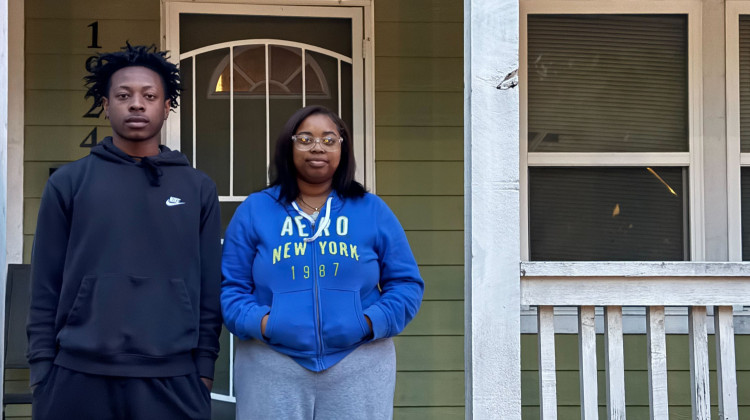
Since Nicole Webster died in December 2023, her children Brice Webster-Easter and Brynn Easter have had to fight keep the home their mom helped build for them through the Habitat program.
Samantha Horton / WFYI NewsNicole Webster’s life changed when she got the keys to her home in 2010.
“She cried, and she was just so happy,” said Webster’s sister Shantel Badji.
Webster bought the house through Habitat for Humanity of Greater Indianapolis.
She had been homeless before they moved into the house, but now she had the chance to build generational wealth for her two young children, Brice Webster-Easter and Brynn Easter.
But when Webster died, her family faced an unexpected challenge. Habitat for Humanity attempted to foreclose on the home — a move that legal experts say ignored federal law.
Habitat is a nonprofit that offers a path to homeownership for low-income individuals and families with interest-free mortgages after completing educational courses and volunteer hours.
It’s the kind of mission Indianapolis is in dire need for amid rising rent and sales prices of single-family homes.
Since the inception of the Indianapolis chapter in 1987, Habitat said it had built and rehabilitated hundreds of houses.
The housing program is not only supposed to help people afford homes but also build generational wealth even after the original owner passes.
But as Webster’s family would learn, that promise might come with a threat to their family’s stability and a lengthy legal battle to navigate the state and federal laws that are supposed to protect them.
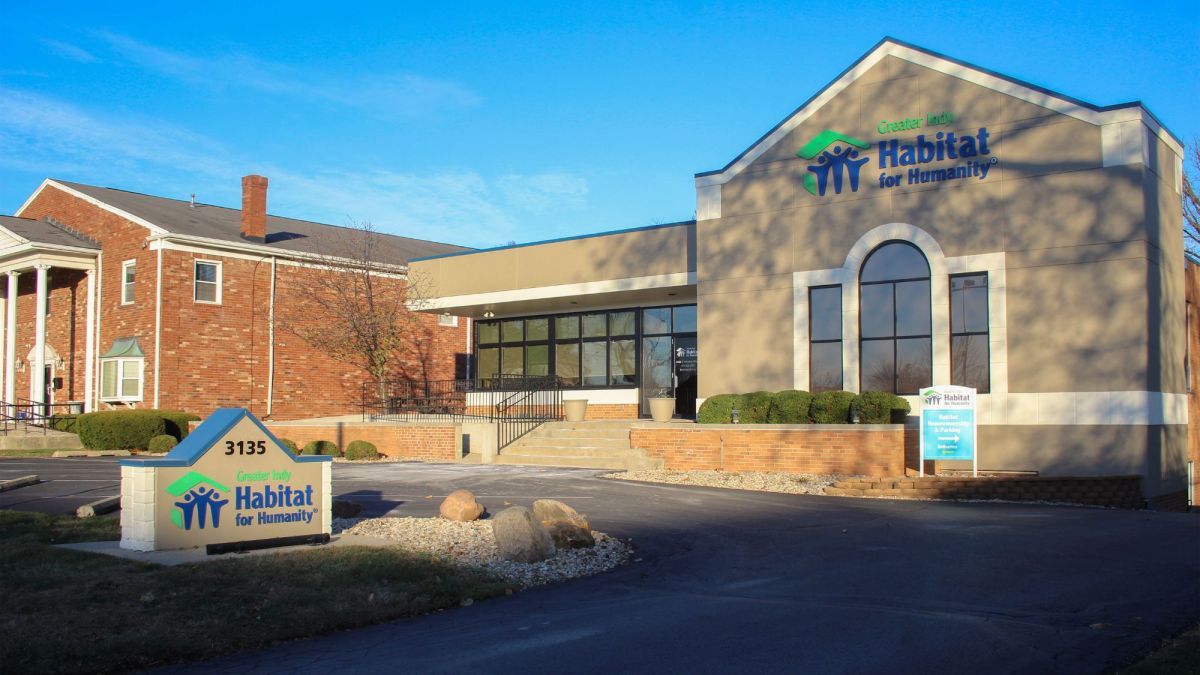
More than just a house
Brice and Brynn were little kids when they first moved into the yellow two-story, three-bedroom house their mom purchased on Cornell Avenue on the Near Northside of Indianapolis.
Brynn’s fondest memory was picking her own bed sheets to style and decorate her bedroom. Years passed and the children had plans for their lives after high school.
“I was going to go to Ivy Tech for a year and then transfer,” Brice said.
But those plans quickly changed last year after their mother had several strokes and her health deteriorated. She passed away in December 2023.
Brice and Brynn put their college plans on hold as they coped with the loss of their mother. Brice, who is now 20 years old, says they had to get jobs. He works as a team leader for an event staffing services and his 18-year-old sister works at a day care.
“You know, we had to pay the bills,” Brice said.
Those bills included the mortgage. Brice and Brynn said they continued to make the monthly mortgage payment even after their mother died.
Bajdi said the family reached out to Habitat to see what needed to be done to transfer the home to Brice and Brynn, who were 19 and 17 at the time.
In a letter in January 2024, the non-profit told the family that to keep the home, they would need to apply to take over the loan or pay off the mortgage balance – $64,277.95 – in its entirety.
But when Brice and Brynn attempted to apply, Habitat refused to transfer the mortgage. The application required Brice to submit two years of tax records, which he did not have. Habitat informed him that they rejected his application and refunded him the $100 application fee, according to a Sep. 16 email.
“What I was told was that they didn’t feel that the kids were of age to basically have that responsibility,” Bajdi said.
Then, in April, Habitat filed to foreclose on the home. Brice and Brynn were stunned when they got the court documents.
“We were like, ‘What are they sending this for?,’” Brice said. “Because we have documentation, proof, that we’ve been keeping up with it.”
The ‘due-on-sale’ clause
Habitat has never claimed the family fell behind on payments. Instead, they foreclosed on the property because Webster died. A provision in the mortgage, known as a “due-on-sale clause,” allows the lender to require immediate repayment of the loan’s remaining balance if the property is sold or transferred.
Due-on-sale clauses protect lenders by ensuring that loans are paid and that homeowners do not have a loophole for interest rates.
But Habitat was in the wrong.
A 1982 federal law, known as the Garn-St Germain Act, prohibits lenders from exercising due-on-sale clauses and foreclosing because a property is transferred to a family member after the owner dies.
“It seems to be extremely settled law that there are all these known exceptions to the due-on-sale clause,” said Bruce Jones, a lawyer with Indiana Legal Services. “I was surprised to see someone like Habitat for Humanity taking the stance that they are.”
Allison Tait, a professor at Richmond University who specializes in estate law, said due-on-sale clauses are common, but someone working in estate and property law should know about the Garn-St Germain Act.
“I think the person on the street does not know this, nor should they, right?” Tait said. “People working at mortgage companies should know this, so it should be beholden upon them to inform the person, because they’re the ones who should know.”
But, despite the law, Habitat for Humanity of Greater Indianapolis pursued foreclosure for months — until WFYI reached out.
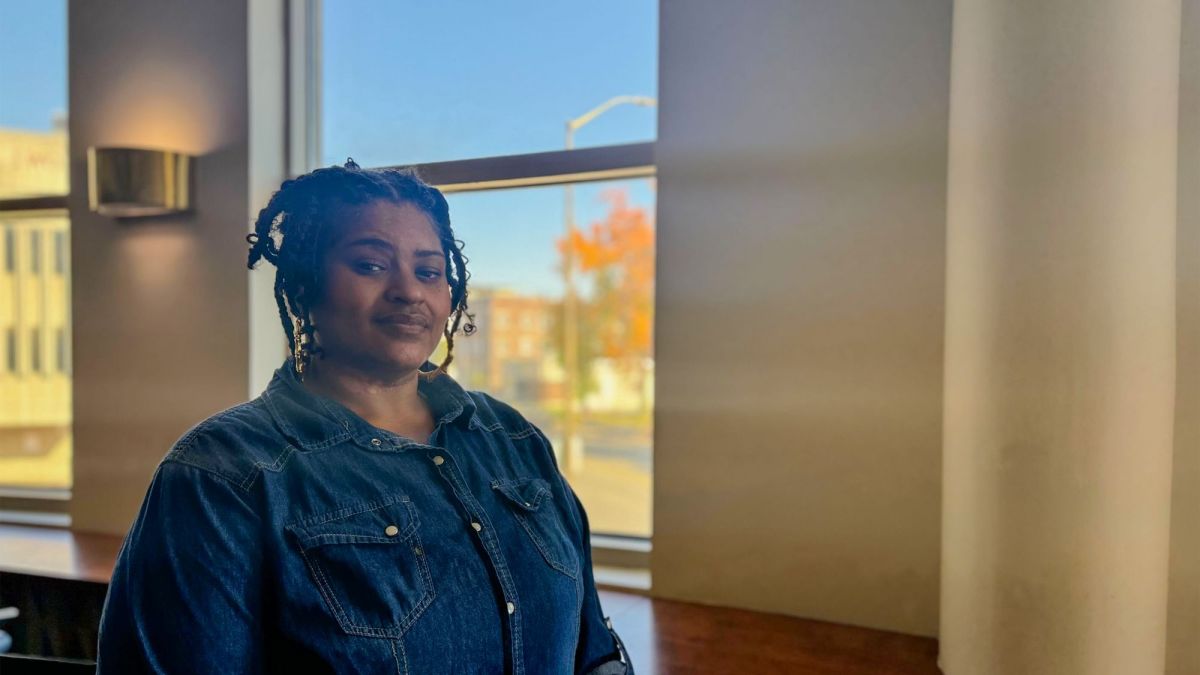
In an email on Oct. 21, WFYI told Habitat that the foreclosure was a violation of federal law and the station was publishing a story about the case. Four days later, Habitat filed to dismiss the case.
In an email to WFYI on Oct. 25, Habitat for Humanity of Greater Indianapolis CEO Jim Morris wrote that Habitat had dismissed the case and that it had been “based on legal counsel’s previously inaccurate and incomplete information.”
“We will continue to collaborate with the Webster family and are committed to meeting the requirements of the law and supporting the family. We have new legal counsel, and we will continue to reflect our dedication to our core mission of building homes, communities and hope,” Morris added.
But this isn’t the only time the organization has used a due-on-sale clause in a foreclosure case of a deceased owner with heirs. In April 2024, Habitat brought a foreclosure case against the resident of another Indianapolis home after the death of a family member.
Morris told WFYI that situation is different in part because Habitat says the family is behind on payments.
In a phone interview, Morris said that the lawyer on the Webster case was no longer being used by the organization. However, WFYI found that the lawyer has since filed a new foreclosure case for the organization, which involved individuals who were behind on mortgage payments. (After the story was published, Morris reached out to inform WFYI that the new attorney advised Habitat to let the lawyer wind down the cases he has been working on before exiting, “and it takes time, so our new lawyers encouraged us to follow through on this foreclosure,” Morris said via email.)
While Badji is glad the foreclosure case has been dismissed, she’s still frustrated with what it took to get Habitat to take action.
“It has been a long battle, considering that [Brice and Brynn] lost their mom, and then for Habitat to go behind and, you know, put further stress on them,” Bajdi said. “I’m still like, I need to have reassurance, if that makes sense, because why did it take so long? And are they really going to do what they say they’re going to do now?”
The Webster family’s experience has stirred up concern with other Habitat homeowners who worry the same thing could happen to them. WFYI talked to some of them, and they say Habitat hasn’t provided them clear guidance on what would happen with their homes when they pass away.
“They never spoke on it, or nothing, and like, to this very day, they still haven’t spoken,” said Tibble Lake, who purchased her home through the Habitat program. “So, if some[thing] was to happen, our kids won’t have nowhere to go.”
UPDATE AND CLARIFICATION (April 25, 2025): We added a follow up comment from Jim Morris about the lawyer involved in the case and more details around the application process.
WFYI investigative reporter Dylan Peers McCoy contributed to this story. She can be reached at dmccoy@wfyi.org.
Contact WFYI All Things Considered newscaster and reporter Samantha Horton at shorton@wfyi.org.
 DONATE
DONATE



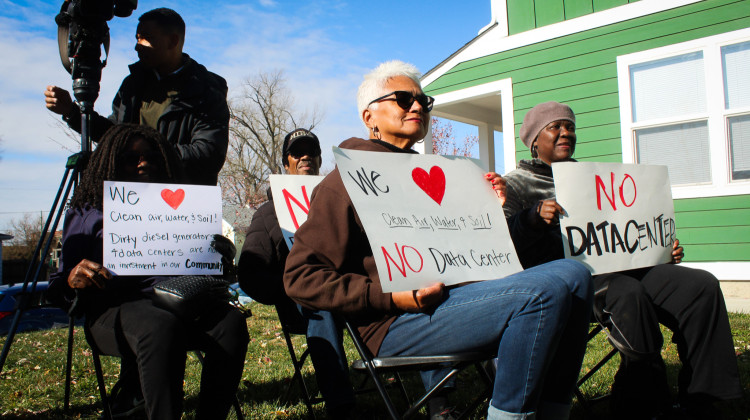
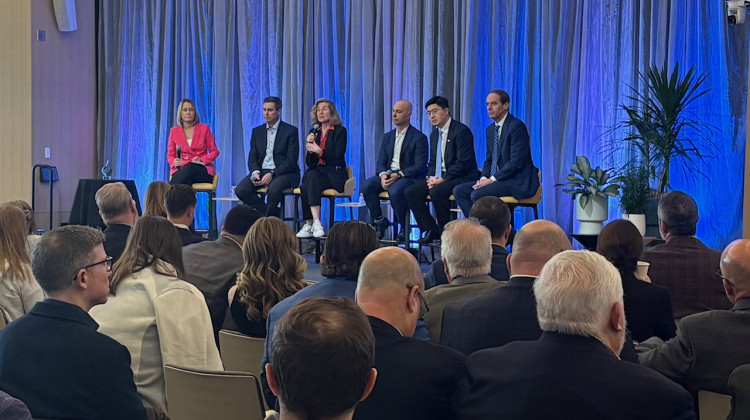
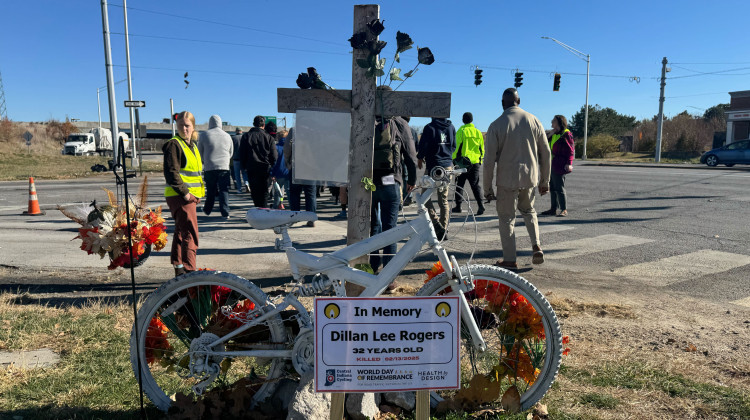

 Support WFYI. We can't do it without you.
Support WFYI. We can't do it without you.